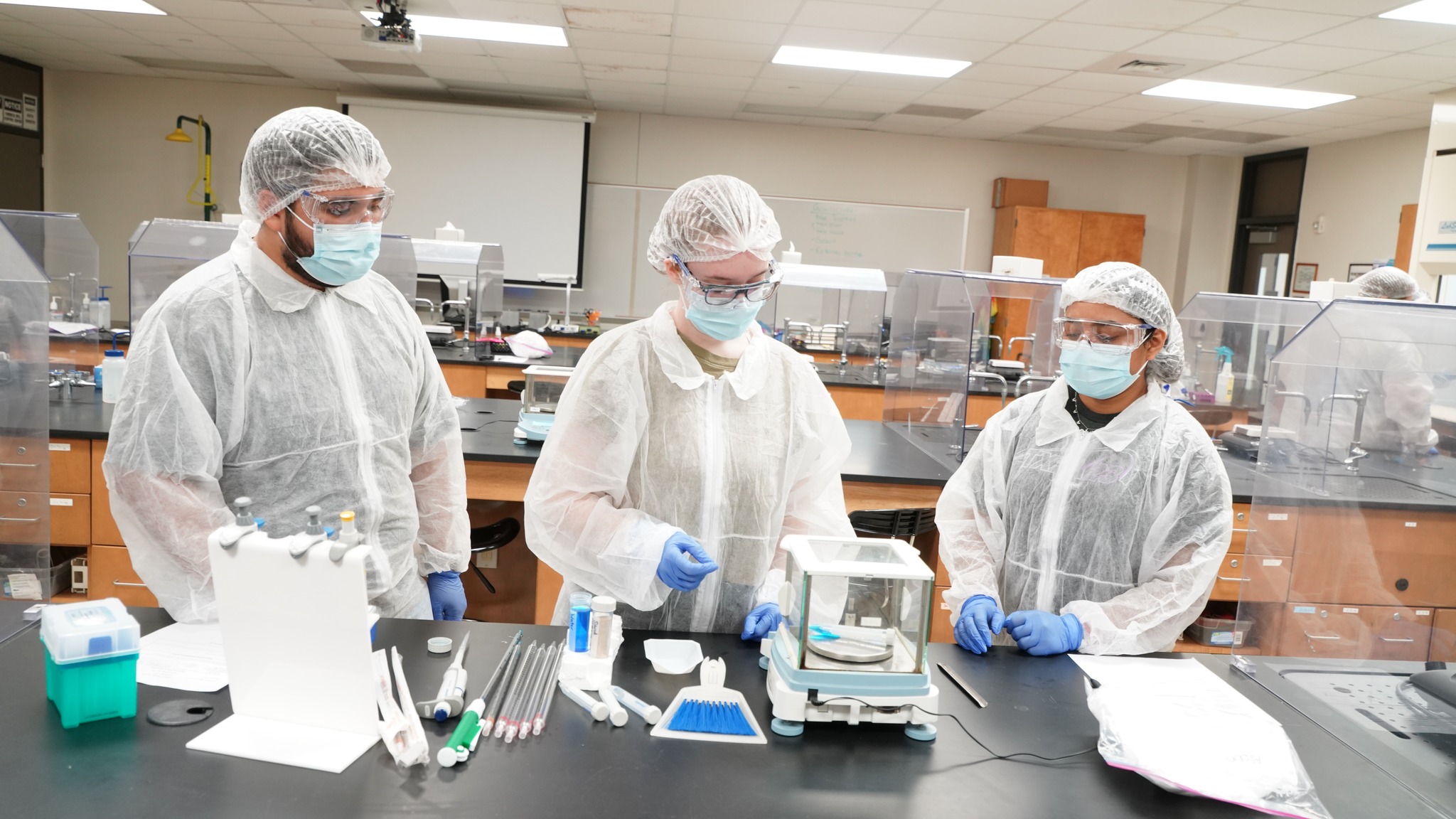Building Tomorrow's Workforce: Alvin Community College and Lonza's Partnership Revolutionizing Biotech Training
Published Jul 29, 2024 by Hailea Schultz
An innovative collaboration between a Swiss multinational biotechnology manufacturing company and a local educational institution has already seen initial success. The partnership between Lonza and Alvin Community College (ACC) is a leading example of how industry and colleges can work together to meet the growing demand for talent and help catalyze the future of biotech in the Houston region.
Lonza Establishes Operations in Pearland
In 2018, Lonza established a 300,000-square-foot life science facility in Pearland, dedicated to cell and gene therapy manufacturing. The company has since seen great success and recently expanded its Houston footprint with an additional 15,000 square feet of lab space. This growth has created a need for more skilled workers to fill entry-level positions at the facility. While Houston boasts a diverse and educated talent pool, Lonza identified a skills gap during its hiring process – eligible candidates with a bachelor’s degree lacked the basic, hands-on skills needed to complete onboarding. So, they forged a partnership with a local educational partner – ACC.
Houston’s Biotech Industry
Biotechnology is a field that involves the use of living organisms, cells and biological systems to develop products and technologies that improve the quality of life and the health of the planet. In Houston, home to the renowned Texas Medical Center, biotechnology is critical for advancing medical treatments, diagnostics and pharmaceuticals.
The region is expected to see an 18 percent increase in job growth over the next 10 years with a third of those positions being in pharmaceutical and medical manufacturing, per a news release from ACC.
Lonza and ACC Partnership
Last fall, ACC launched the new biotechnology program to create a direct pipeline of entry-level technicians for Lonza. ACC worked closely with Lonza to develop a curriculum for two six-week courses designed to equip students with essential biotechnology safety procedures, such as gowning and de-gowning for clean rooms and using bio-safety cabinets. The program targets high school graduates and professionals seeking a career change, offering certifications as Biotech Material Handlers or Biotech Core Technicians. Since its inception, the program has produced 12 graduates, with one direct hire at Lonza, ACC told the Partnership.
“The biotech program at ACC was very affordable [and] very quick as well,” said Crystal Aguilar, ACC biotech program graduate and Core Technician I, Lonza, in a testimonial video. “They did teach us how to use the equipment, so the pipette aids, the serological pipettes, how to transfer the cells [and] how to get the job done. At Lonza, we had an onboarding training where I felt very advanced and confident in what I was doing. I was able to finish that training in half the time where other coworkers who had attended a four-year degree institution had taken longer.”
Following the first cohort, Lonza eliminated its bachelor's degree requirement for potential candidates, ensuring that individuals with certificates or entry-level skills are considered. Additionally, ACC has extended the program from 12 to 15 weeks to ensure career readiness by adding interview prep sessions, virtual reality training and increased time for students to practice gowning and de-gowning.
“Our goal is to not only create customized trainings to meet the immediate workforce needs, but also create stackable pathways so that students can continue to enhance their skills and career [possibilities],” said Stacy Ebert, Vice President of Workforce & Strategic Initiatives at ACC, at the Partnership’s Upskill: Life Sciences Forum.
ACC’s Commitment to Advancing Biotech Careers
To further enhance the program’s capabilities, the Texas New Mexico Power Fund provided an $8,000 grant to purchase a biosafety cabinet for the Biotechnology training certificate courses. The cabinet will enable students to become familiar with the equipment they will use in the workforce. Additionally, ACC signed a five-year lease agreement for a 14,500-square-foot facility in Manvel, which will house a new biotech lab, providing space for students to engage in hands-on learning.
The new facility underscores ACC’s commitment to supporting the region’s workforce needs, offering a diverse array of training and certificate programs tailored for local employers.
Learn more about Houston’s growing biotech industry and the Partnership’s Upskill Houston initiative.
 The Houston Report
The Houston Report




















